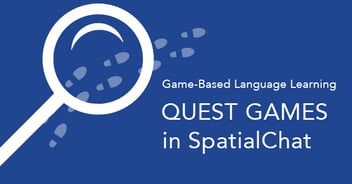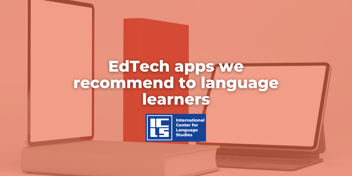Video Games Turn Into Language Learning Games — How?

Nowadays, with their realistic visuals, and thrilling narratives, many video games are seen as a way of complementing traditional language learning methods. And in a motivational sense, video games work very effectively by engaging interest in a subject, a culture, or a language!
Many people, especially among educators, are coming around to the belief that video games can have a genuine educational value as there’s nothing more guaranteed to motivate someone to learn a new language than by sparking their interest. Here, we’ll explore how video games help people to learn a new language and culture.
As video games become more and more sophisticated, their place in education is becoming increasingly apparent. And there are a number of scientific research studies that support the claim that video games are an effective language learning tool. Video games are among the most popular leisure activities in the world, among adults and children alike. There’s a common misconception that gamers are generally children and teenagers. It may surprise you to learn that the average age of gamers is 31! It’s estimated that there are more than two billion gamers worldwide. A huge audience!
So, how do video games help people to learn a new language?
Studies demonstrate that language learning occurs quickly when done in context, and this applies directly to video games. As gamers progress through the various levels of the virtual world in which they’re immersed, they’ll be learning the names of real things they encounter, such as places, characters, objects, treasures etc, and thereby boosting their vocabulary. Subconsciously, gamers will also be learning grammar rules as the dialogue unfolds within the game. This is learning by doing, which is the one of the very best ways to learn!
Repetition of words and concepts is the way in which we embed our vocabulary. As you’re playing a video game, you’ll be hearing the same words over and over, associating words with objects and learning without even realising that you’re doing so, and the more you play the game, the more entrenched those memories and associations become.
Finding the right learning platform couldn’t be easier. There are multiple platforms on which people interested in learning a new language can play. PlayStation, Xbox, Nintendo, Windows for PC, Smartphones etc. And all you need do is select the target language you wish to learn and you’re ready to go.
Dialogue based games are great for vocabulary and conversation. Whatever game you choose, you’ll find plenty of people from around the world who speak your target language, enabling conversation to flow, while all the time having fun. And we shouldn’t disregard or underestimate the importance of entertainment in language acquisition. The more fun you’re having, the quicker you learn! For this reason, live interactive games can be really helpful and valuable in language acquisition. Games involving word puzzles in the language you’re learning are an invaluable resource.
Playing a video game in a different language is simple. If you’re using a Smartphone, just switch the settings to your target language. Most games for consoles have different language options too, and online games such as Steam allow the user to filter games by language.
Let’s take a look at some examples of video games that can help people to learn a new language and culture:
Scrabble
In the online version of this most famous of puzzle games, users can pit their wits and language skills against players from all over the world in their target language. Scrabble is an excellent way to improve vocabulary in any language.
Influent
A simple videogame specifically designed for language learning. The user simply walks around a virtual apartment full of common household objects and clicks on the object to learn its name in their target language (18 common languages available and 420 words to learn). Object words are saved in a list to test your memory later on. Influent is available for download on Mac, Windows or Steam and is particularly useful for beginners.
Traditional videogames
Video games such as FIFA are great for learning vocabulary and pronunciation in a wide range of different languages. Similarly, Game of Thrones, Grand Theft Auto, Oblivion (an open action interactive role-playing fantasy game), Call of Duty, Star Wars, Elder Scrolls, Lord of the Rings, and The Witcher are highly developed fantasy games that are rich in dialogue and great for picking up colloquialisms and language. Total War: Three Kingdoms is a multi-award-winning video game and probably the most widely known and popular video game set in China. Widely praised by critics and users alike for its character driven gameplay and superb storytelling, it combines stunning visuals with historical and fantasy elements. One reviewer described Three Kingdoms “as close to flawless, with a fantastic balance of 4X strategy and character-focused development and emergent storytelling.” While the UK Guardian wrote: “a wonderfully torrid period epic that understands the greatest stories are written about people, not empires.” Three Kings is a great example of how video games can help people to learn Mandarin Chinese language and culture.
Video games are a great way to supplement conventional language learning methodology. Gamers are not going to become fluent in a new language simply by playing video games, let’s be clear on that point! But learning a new language and playing video games in your target language is a rewarding, entertaining and engaging process that doesn’t even feel like learning.
Learn more about using teacher tools online (including ChatGPT for language teachers) at our Teacher PD tech workshops.


